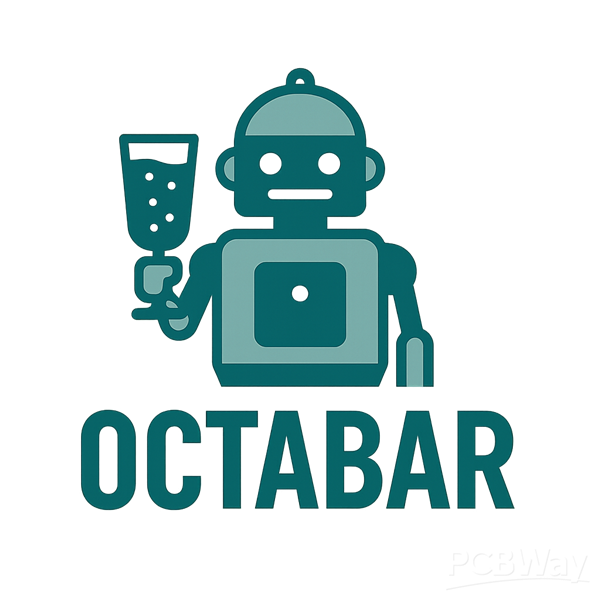OCTABAR - Smart Mix. Smart Serve. Smart Future.
The OCTABAR project emerged during the course of the FIV project at the beginning of the fourth school year. We are building on the work of the previous fourth-grade class and expanding the existing project with additional functionality. The original project idea resulted from observing inefficient beverage service at an event. Long waiting times, inconsistent dispensing rates, and uncontrolled pouring led to significant time loss and unnecessary resource consumption.
Our OCTABAR project will consist of two parts. The first part includes the main housing, a catch basin, a bottle holder, a cup dispenser, a graphical user interface, sensors, and liquid transport devices.
We plan to design the catch basin ourselves. The cup dispenser will be built into the main housing and will dispense cups below the beverage outlet.
The sensors are intended to ensure safe operation of the device and to prevent damage to the electronics and housing. The second part is a module for transporting individual beverages. These components are responsible for moving the dispensed drinks onto a tray. This process allows for ordering and dispensing multiple drinks in succession.
We aim to build the components as modularly as possible to allow for easy assembly and disassembly. We plan to use various materials to strike a balance between robustness and weight. Different sensors will ensure smooth operation. Control will begin as soon as the module is connected to the main unit (housing).
To provide a clear understanding of the foundation and development of our project, we would first like to present the original project created by the previous fourth-grade class. Our previous work serves as the basis for our concept and the further development of our extended version of OCTABAR.
Below, we show several images and representations of the original project to illustrate the state of development at that time:




These visuals form the foundation for our thesis, in which we further develop the project both technically and functionally, as well as in terms of design. In the following section, we will explain the specific extensions and modifications we made as part of our work.
We would greatly benefit from the support of PCBWay. As a student team currently developing OCTABAR, an automated beverage dispensing system for our final-year project, we face challenges in producing reliable electronic components within a limited budget and timeframe.
Access to fast and high-quality PCB manufacturing would significantly speed up our prototyping process and allow us to focus on testing and refining the system. This support would not only improve the technical performance of our project but also give us the opportunity to deepen our practical skills in electronics, system integration, and product development.
OCTABAR is designed to automate the process of drink preparation and distribution. It is based on a previous class project, which we are now expanding with new features, improved control systems, and greater user-friendliness.
With PCBWay’s support, we could bring this project to a new level of precision and efficiency. We’re excited about the opportunity to collaborate with PCBWay and take our engineering experience further with your help.
Apply for sponsorship >>- Comments(0)
- Likes(0)
















